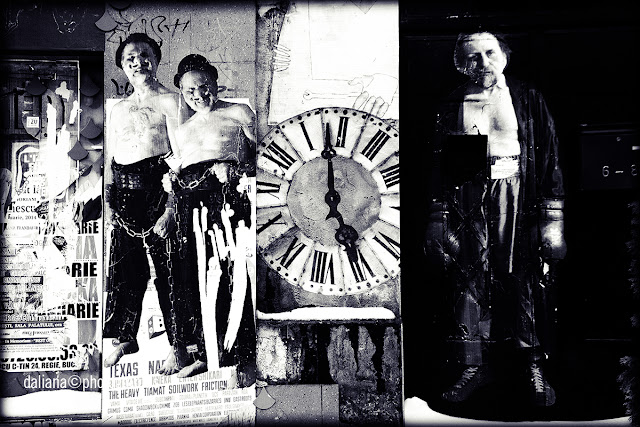Sfantul Ioan Botezatorul – pictura a Parintelui Arsenie Boca, pe tavanul
micului pronaos al bisericii pe care a pictat-o in intregime in satul
Draganescu de langa Bucuresti
“Intrăm în crestinism de mici, tare de mici, prin Botez.
Atunci ni se „inoculează” crestinismul. Atunci suntem născuti a doua
oară din apă si din Duh – Botezul (…)”“Toti crestinii sunt botezati si totusi nu toti se mântuiesc. De ce? Iată de ce: Darurile Botezului stau înlăuntrul făpturii noastre nevăzute, asteptând sporirea vârstei si vremea mintii, când, prin propovăduirea Bisericii, aflăm despre comoara cerească cea ascunsă în tarina fiintei noastre.”
“Curătirea deplină a firii, întâmplată prin Botez, asteaptă si vremea mintii, când curătirea e aflată efectiv prin porunci.”
“Desi înzestrati cu darurile Botezului, totusi n-am scăpat de războiul momelilor. Momeala nefiind păcat, e permisă de Dumnezeu să cerce cumpăna libertătii noastre. (…) Sfântul Marcu Ascetul ne lămureste: Hristos prin cruce si prin Harul Botezului ‘slobozindu-ne de orice silă, n-a împiedicat aruncarea gândurilor în inimă. Aceasta pentru ca unele din ele, fiind urâte de noi, îndată să fie sterse; altele, fiind iubite, în măsura în care sunt iubite să si rămână; si astfel să se arate si harul lui Dumnezeu si voia omului, ce anume iubeste: ostenelile din pricina Harului, sau gândurile din pricina plăcerii’. Aici stă pricina pentru care noi, desi botezati, totusi mai avem trebuintă si de al doilea Botez, al pocăintei, întrucât nu suntem ca îngerii neschimbabili.”
“Darurile Sfântului Botez ne îmbie, lăuntric prin constiintă, si dinafară prin cuvântul Bisericii, la împlinirea poruncilor lui Dumnezeu.”
“Fiecare din noi, ori stim, ori nu stim, ori credem, ori nu credem, purtăm pe Hristos Iisus si pe Duhul cel Sfânt în temelia făpturii noastre celei duhovnicesti. Hristos Iisus Cel cu Cruce, este asadar piatra unghiulară, temelia zidirii noastre celei duhovnicesti. Aceasta e adevărat pentru toti cei botezati.”
Mai sus – extrase din scrierile Parintelui Arsenie Boca.
sursa : anomismia.wordpress.com
The glorious Prophet and Forerunner John the Baptist is also referred to as John the Forerunner because he was the forerunner of Christ. He was an ascetic and great prophet, who baptized Christ and became one of the most revered saints in the Orthodox Church. John is a cousin of Christ through his mother Elizabeth who was the daughter of Zoia. Zoia is the sister of Christ's grandmother.
He was later beheaded by Herod in the first century to satisfy the
request of Herod's stepdaughter, Salome, and wife Herodias. Because he
baptized Christ, he is the patron saint of godparents. He is sometimes called the Angel of the Desert; because of this title, he is sometimes depicted with wings.










